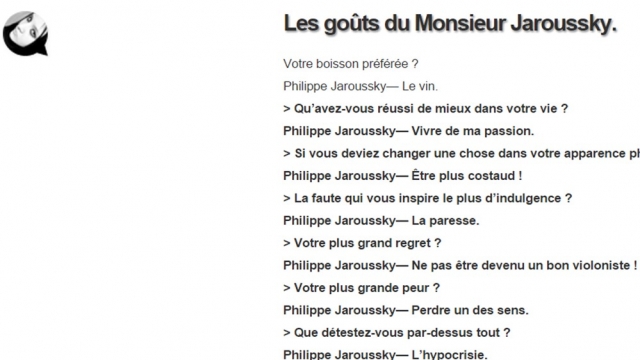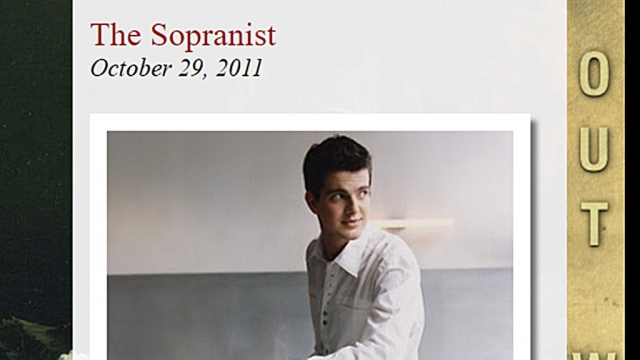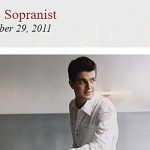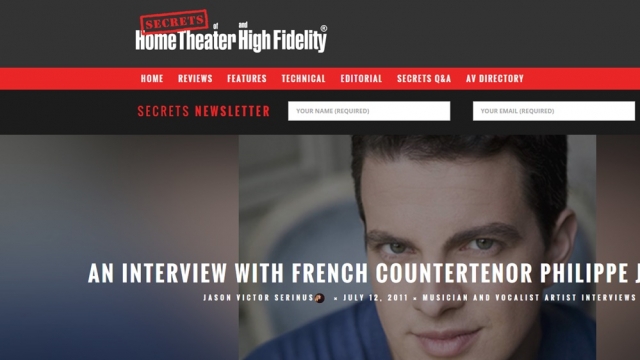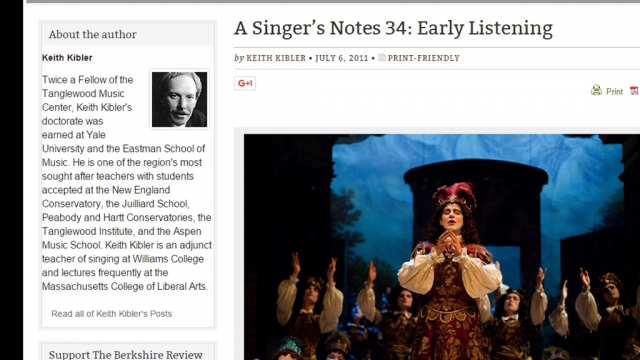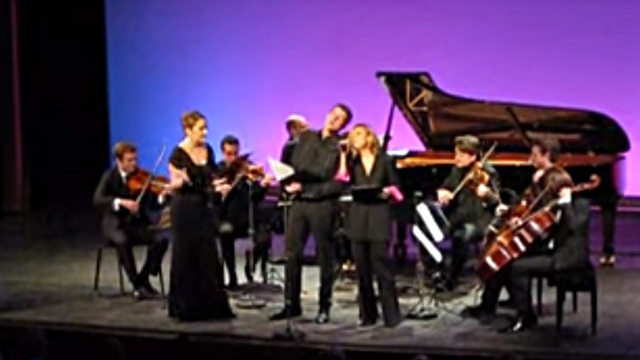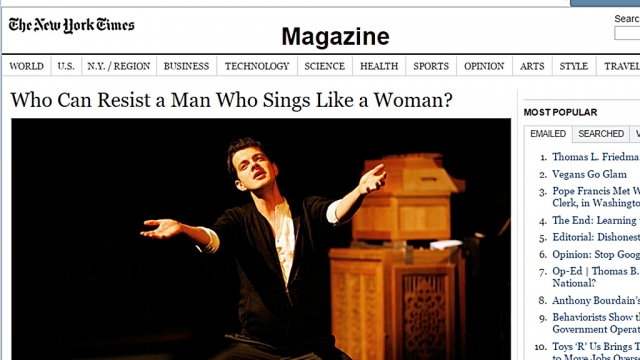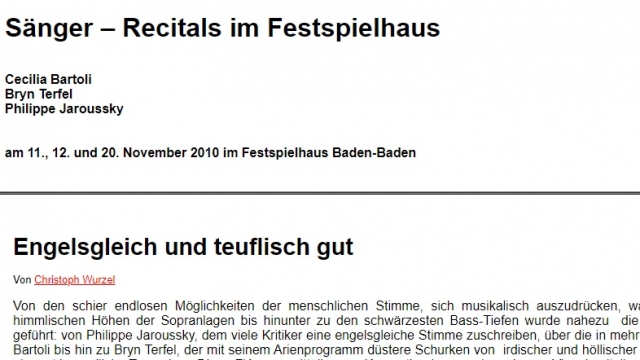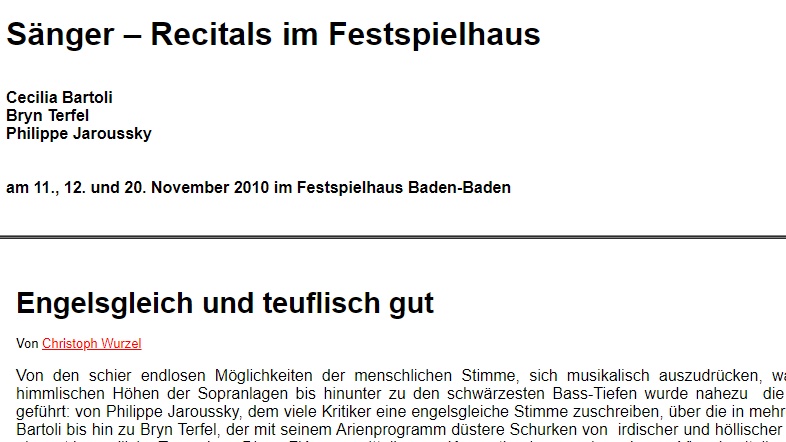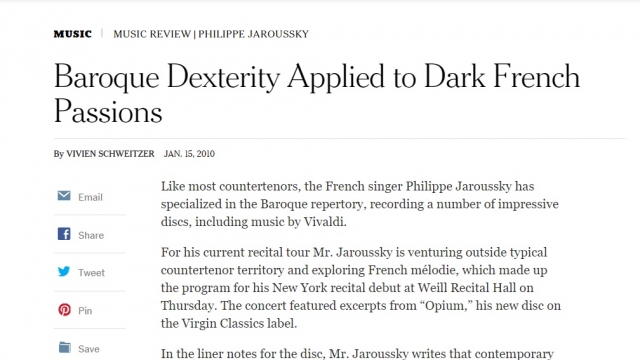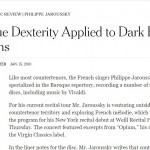before 2012, source unknown, via [x]
Les goûts du Monsieur Jaroussky
Votre boisson préférée ?
Philippe Jaroussky— Le vin.
> Qu’avez-vous réussi de mieux dans votre vie ?
Philippe Jaroussky— Vivre de ma passion.
> Si vous deviez changer une chose dans votre apparence physique, quelle serait-elle ?
Philippe Jaroussky— Être plus costaud !
> La faute qui vous inspire le plus d’indulgence ?
Philippe Jaroussky— La paresse.
> Votre plus grand regret ?
Philippe Jaroussky— Ne pas être devenu un bon violoniste !
> Votre plus grande peur ?
Philippe Jaroussky— Perdre un des sens.
> Que détestez-vous par-dessus tout ?
Philippe Jaroussky— L’hypocrisie.
> Votre devise ?
Philippe Jaroussky— Toujours remettre à demain ce qu’on peut faire aujourd’hui ! (Une fâcheuse tendance dont je n’arrive pas à me débarrasser…)
> État présent de votre esprit ?
Philippe Jaroussky— En ébullition !
Comment aimeriez-vous mourir ?
Philippe Jaroussky— Sans m’en rendre compte.
> Si vous êtes croyant, qu’aimeriez-vous que Dieu vous dise en arrivant au ciel ?
Philippe Jaroussky— Je ne crois pas, du moins pas en Dieu.

